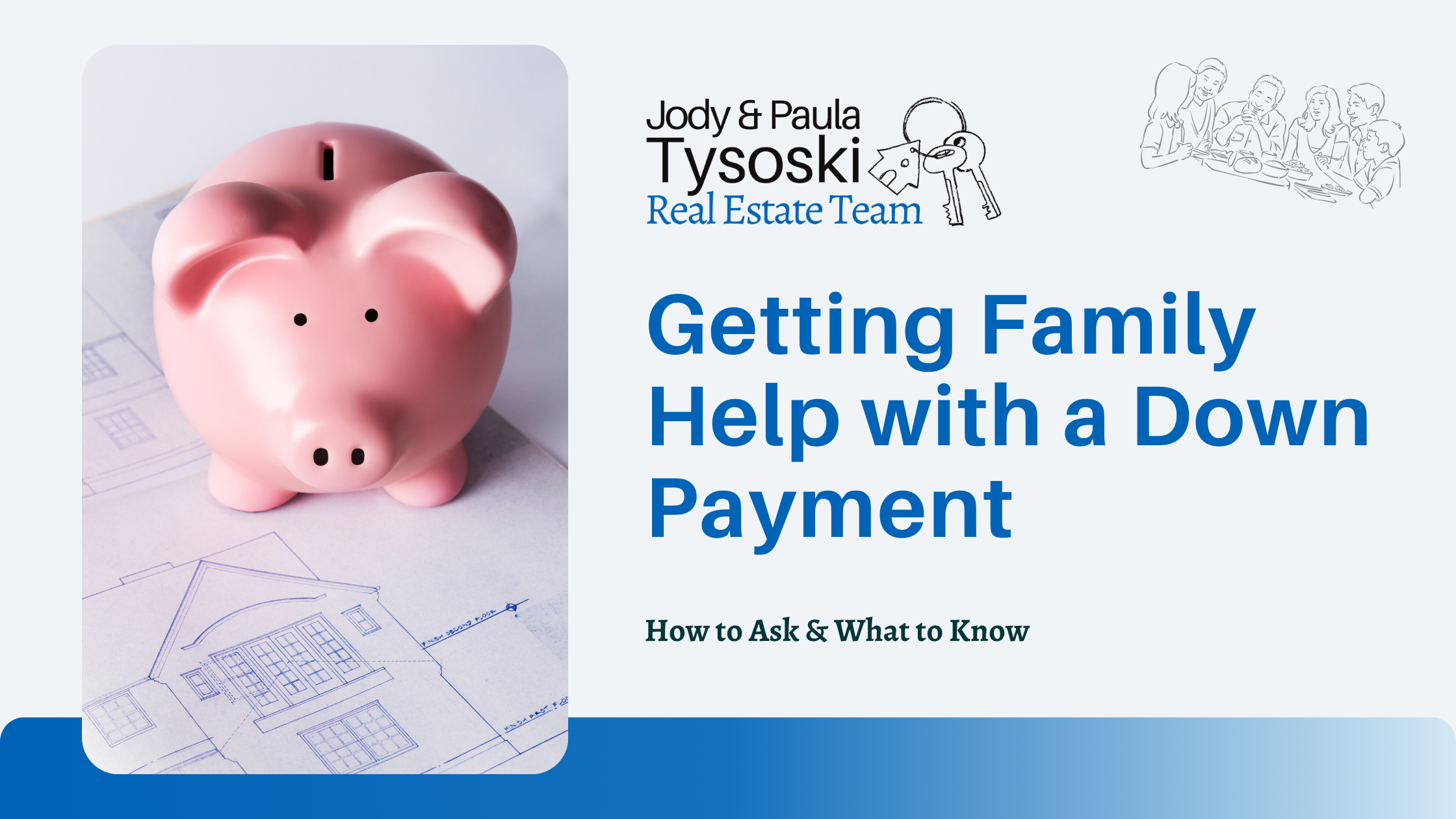
For many first-time homebuyers in Ontario, saving for a down payment can feel like an uphill battle—especially with rising home prices in cities like Brantford and across Brant County. It’s no surprise that more buyers are turning to their parents and grandparents for financial assistance to get into the housing market. But how do you approach this conversation with confidence and clarity?
Here’s what you need to know about asking for family help and the key considerations when receiving a gifted down payment.

Before approaching your parents or grandparents, take the time to clearly outline your homeownership goals. Are you looking to buy your first home in Brantford, Paris, or another part of Brant County? Explain how a family gift or loan could help you qualify for a mortgage or reduce your monthly payments, making homeownership more attainable.
In Canada, mortgage lenders require a gift letter stating that the funds do not need to be repaid. If the financial help is a loan instead of a gift, the lender will factor the repayment obligation into your mortgage approval process. It’s important to clarify this distinction upfront to avoid any financing issues.
Some family members may want to help but might be unsure about how much they can contribute. Consider discussing options such as matching your savings, contributing a set percentage of the down payment, or providing an interest-free loan if gifting the full amount isn’t possible.
Even within a family, financial agreements should be documented. If your family is providing a loan rather than a gift, putting the terms in writing helps prevent misunderstandings in the future.
Not every family member will be in a financial position to help, and that’s okay. Whether or not they contribute, expressing gratitude for their consideration will strengthen your relationship.

A recent CIBC study found that 36% of first-time homebuyers in Ontario received financial help from family members, surpassing the national average of 31%. The average gifted down payment for first-time buyers in Ontario is now $128,000, reflecting the higher cost of homeownership in the province.
Even move-up buyers—those upgrading to a larger home—are increasingly relying on gifted funds. 12% of this group receives financial assistance, with an average gift amount of $167,000 to help secure a larger property.

Although Ontario home prices have softened since their COVID-era peak, they remain significantly higher than pre-pandemic levels. Many parents and grandparents who are downsizing are using the equity from their home sales to assist younger family members with their first or next home purchase.
Brantford and Brant County have seen substantial growth in recent years, with increased demand for housing. With affordability becoming a challenge, especially for young professionals and families, financial gifts are playing a crucial role in helping the next generation enter the market.
Many parents view helping their children buy a home as an investment in their future financial security. However, it’s essential to ensure that gifting fits into a broader wealth strategy. Consulting a financial planner or wealth advisor can help families structure gifts in a way that benefits both the giver and the recipient.

Buyers must inform their mortgage lender if they are receiving a gift, as lenders require documentation. If the gift is a loan, it will impact the mortgage approval process.
Canada does not impose a gift tax, but there may be tax implications related to estate planning. Families should consult with a tax specialist to ensure their financial gift aligns with their long-term plans.
Receiving a gifted down payment is a great advantage, but new homeowners must still be prepared for ongoing costs such as property taxes, maintenance, and mortgage payments. Budgeting for these expenses is essential to maintaining financial stability.

Asking family for financial help with a down payment can feel uncomfortable, but approaching the conversation with clarity and confidence can make all the difference. Here’s how to navigate it:
This isn’t a conversation to have in passing. Set aside time for a thoughtful discussion when everyone is relaxed and open to talking about finances. If possible, meet in person or schedule a video call to make it feel more personal.
Start by explaining why homeownership is important to you and how it fits into your long-term financial plan. Share details about the type of home you’re looking for, why you want to buy now, and how much you’ve already saved. This shows your commitment and responsibility.
Parents and grandparents may worry about:
Reassure them by showing a well-thought-out budget, your mortgage pre-approval (if available), and an understanding of homeownership responsibilities.
Instead of asking for a specific amount, present different ways they could help:
No matter their decision, express gratitude for their time and consideration. If they can’t help financially, their guidance and support in your home-buying journey are just as valuable.

If your family is willing to assist but a large financial gift isn’t possible, there are other ways they can help:
Rather than covering the full down payment, they could contribute a smaller amount or match what you save. This motivates you to continue building your savings while still getting a financial boost.
Buying a home comes with extra costs beyond the down payment, such as:
If they can’t contribute to the down payment itself, covering one or more of these expenses can still make a big difference.
If your income or credit history makes mortgage approval challenging, a parent or grandparent can co-sign. This helps you qualify for a loan but comes with responsibility—if you miss payments, they are legally responsible for covering them.
Some families prefer to offer financial help in the form of a structured loan instead of a gift. A written agreement can outline repayment terms, ensuring clarity for both parties.
If you’re currently renting, moving in with family for a set period can help you save faster. By putting the money you would have spent on rent directly into your down payment fund, you can reach your goal sooner.
If you’re considering asking family for help with a down payment—or if you’re a parent or grandparent thinking about gifting funds—it’s important to have open, honest discussions about expectations and financial realities.
Navigating the Ontario real estate market can be complex, but professional advice can help ensure that financial assistance is structured in a way that benefits everyone involved. If you’d like to explore your options for home buying in Brantford and Brant County, I’d be happy to guide you through the process!
Always consult licensed professionals for the most up-to-date information.
Let’s connect to discuss your homeownership journey and financial options. ??